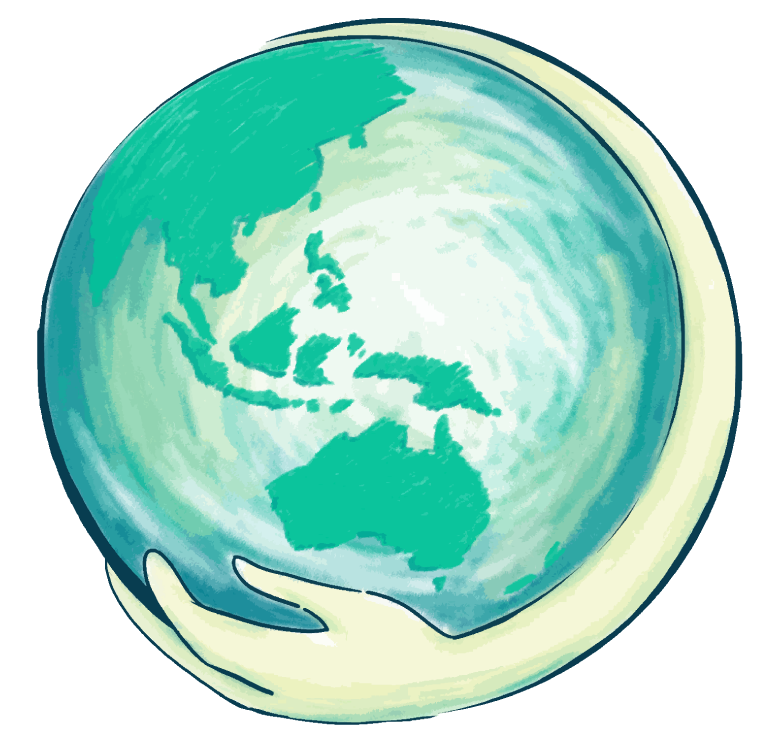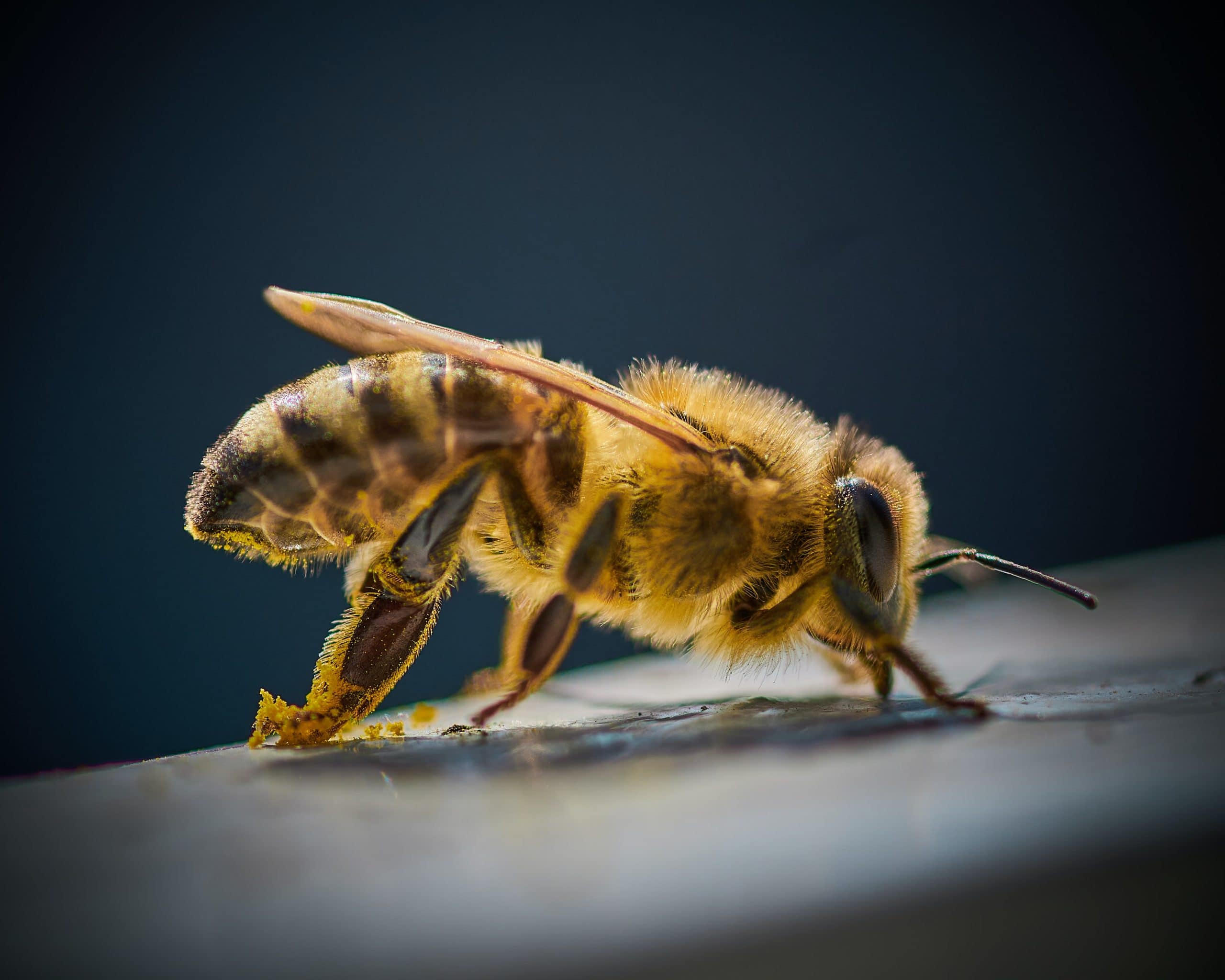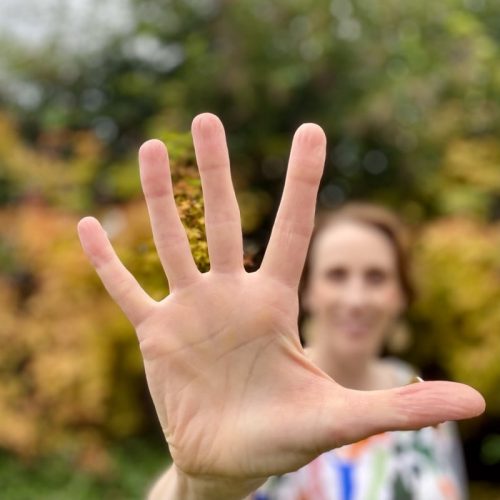I’ve been finding lots of dead bees in my yard lately! When I told my young son (who was recently stung by a bee), he seemed pleased by my observation! But is it really a good sign that I keep finding dead and dying bees on the ground?
When I started researching a way to explain this to my son, I discovered that bees are really important, both for us and the earth. And that they’re not just dying in my backyard. Millions of hives have died over the last few years. Unusually high bee mortality has been reported across Western Europe.[i] In the United States, the number of honey-producing colonies has declined from about 5.5 million in 1950 to less than 2.5 million in 2015, and there have been sudden colony losses in Japan and China.[ii] In fact in some parts of south west China, pollination is now done by hand out of necessity, as some wild bee populations have been wiped out.[iii] Up to 30 per cent of south-eastern Australia’s bee population were wiped out due to an intensified drought in the region in the Summer of 2013.[iv]
So why should we care and what’s causing this decline?
It’s been estimated that bees pollinate[v] a third of everything we eat, and they play a vital role in sustaining the planet’s ecosystem.[vi] On a ‘backyard’ scale, a lack of pollination results in a fruitless tree, but on a large scale it could mean a shortage to our food supply!
So whether or not we consciously care if bees are dying or not, we need to ask ourselves – do we care if 1 in 3 of our food sources disappear? And do we care if other species that rely on bees doing their job cannot survive without this vital part of our ecosystem? Like many other species, the bee plays a vital role in keeping the balance between other species and their environment. As Dr Anneke Veenstra notes ‘If we lost all the plants that honey bees pollinate, the small animals that eat those plants will be negatively impacted resulting in fewer prey species for larger carnivorous animals and so on up the food chain.’[vii]
While bees are small, their impact to our life on Earth is huge! If something is wrong with them, we need to find out what and stop doing it!!
In 2016, the first global assessment of the state of the world’s pollinators was released by an international team of 77 experts. Their results were drawn from the findings of approximately 3000 scientific papers, and incorporated indigenous and local knowledge from over 60 locations around the globe. The report noted that the experts were concerned by declines, and cited numerous factors as being responsible, including:
- Pesticide use (including neonicotinoids[viii]);
- Drought;
- Habitat destruction and intensive agriculture;
- Devotion of large areas of land to monocultures (growing only one type of a crop at one time on a specific field);
- Global warming;
- Mites, viruses and diseases;
- Air pollution; and
- Use of genetically modified crops.
Many of these causes are interrelated. And humans are largely responsible for the two most prominent causes: pesticides and habitat loss.
So what can we do to help bees?
For Us and Earth Tips:
Cities and suburbs can be a surprisingly great habitat for insects, as long as we provide enough food, habitat and shelter. If you have a garden or balcony, you can turn your outdoor space into one designed with bees in mind:
- When planning your flower beds/pots, consider planting single flowered varieties, which are easier for bees to access. Single flowered plants have a simple corolla (ring of petals), with visible pollen covered anthers;
- Bees like native plants, so wherever possible, consider planting natives;
- Try to plant white, yellow, purple, and/or blue flowers, as these are colours bees can identify quickly and easily;
- Keep part of your yard messy! Depending on the species, bees will take winter refuge under a pile of bark or dried leaves, or nest in cavities in hollowed out stems and decomposing logs. Others will create burrows in the ground to reproduce and ride-out the cold winter months.
- If you’re into DIY, you can even build your own bee hotel out of bamboo, creating a bee-friendly habitat in your own back garden; and
- Bees also like a place to rest and refresh themselves, so why not add a bee bath as a rest stop for busy bees who pay your garden a visit. Make sure you use a dish or vessel that allows the bees to easily get into, and out of the water. Water should be topped up regularly and the bee bath kept clean.
As to exactly why the bees are dying in my backyard, it’s still a mystery. But at least now I have some clues, loads of motivation, and new ways to welcome bees back into my yard – both for us and our beautiful planet.
Yours in Health,
Carolyn
[i] https://ec.europa.eu/food/animals/live-animals-trade-imports/honey-bees_en
[ii] https://www.science.org.au/curious/everything-else/bees
[iii] https://bees4life.org/bee-extinction/6-reasons-for-bee-extinction/honey-bee-loss-numbers
[v] Pollination is the movement of pollen from the male organ of flowers (anther) to the receptive female parts of flowers (stigma) of the same or different plants. This is how plants reproduce. While not required to make flowers grow and bloom, it is necessary for many plants to grow fruit. Without pollination many plants cannot bear fruit or produce new seeds to grow new plants.
[vi] Pollinators – David Suzuki Foundation
[vii] School of Life and Environmental Sciences, Deakin University – What does the bee decline mean for civilisation? | this. (deakin.edu.au)
[viii] A systemic agricultural insecticide resembling nicotine. Like nicotine, the neonicotinoids act on certain kinds of receptors in the nerve synapse. Several behavioural studies show the link between neonicotinoid exposure and adverse effects on bee’s foraging activity and reproduction.



Want to learn more about reducing your exposure to toxics in your everyday products, and other simple swaps for a healthier you & earth?
Sign up here and receive my free 5 Easy Ways to Reduce Toxics OR Join my mailing list and receive regular tips to lower your toxic load.